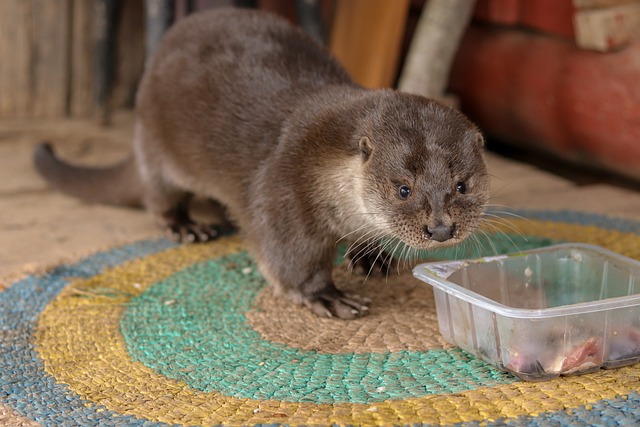



Owning an otter as a pet may seem like a dream come true for some animal lovers. These adorable creatures are known for their playful nature and captivating appearance. However, before considering bringing an otter into your home, it is crucial to understand the legal requirements and regulations surrounding their ownership.
The legality of owning an otter as a pet varies from country to country and even within different states or provinces. It is essential to research and familiarize yourself with the specific laws and regulations in your area before considering otter ownership.
In some countries, such as the United States, otters are classified as exotic animals, and their ownership is heavily regulated. Other countries may have outright bans on owning otters as pets. It is crucial to consult local wildlife agencies, animal control departments, or exotic pet organizations to obtain accurate and up-to-date information on the legal requirements in your area.
If owning an otter as a pet is legal in your area, you will likely need to obtain permits and licenses to ensure compliance with local regulations. These permits are typically issued by wildlife agencies or departments responsible for the conservation and protection of native wildlife.
The process of obtaining permits and licenses may involve filling out application forms, providing documentation of your ability to care for an otter, and paying fees. It is essential to follow the application process diligently and provide all the necessary information to increase your chances of approval.
Owning an otter as a pet comes with significant responsibilities. These animals have specific housing and care requirements that must be met to ensure their well-being. Before bringing an otter into your home, you must have a suitable enclosure that provides ample space for them to swim, play, and explore.
The enclosure should mimic their natural habitat as much as possible, including a pool or water source for swimming and diving. It should also have areas for resting, hiding, and climbing. Additionally, otters require a varied diet consisting of fish, shellfish, and other aquatic creatures. It is crucial to provide a nutritionally balanced diet that meets their dietary needs.
Owning an otter as a pet requires a significant commitment to their welfare and well-being. These animals are highly social and require companionship and mental stimulation. It is essential to provide them with plenty of enrichment activities, such as toys, puzzles, and interaction with their human caregivers.
Regular veterinary care is also crucial for otters. They should receive routine check-ups, vaccinations, and preventive treatments for parasites. It is essential to find a veterinarian experienced in treating exotic animals or specifically otters to ensure their health and well-being.
Engaging in illegal ownership of an otter can have severe consequences. If caught with an otter without the necessary permits and licenses, you may face legal penalties, including fines, confiscation of the animal, and even criminal charges. Additionally, illegal ownership can contribute to the illegal wildlife trade and the exploitation of these animals.
It is crucial to respect and abide by the laws and regulations put in place to protect otters and their natural habitats. By doing so, you contribute to the conservation and welfare of these incredible creatures.
While owning an otter as a pet may seem appealing, it is essential to consider alternative options that promote the well-being of these animals. Instead of keeping an otter as a pet, you can support organizations and sanctuaries dedicated to the rescue, rehabilitation, and conservation of otters.
By volunteering or donating to these organizations, you can contribute to the welfare and conservation efforts of otters without compromising their natural behaviors and habitats. Additionally, you can educate others about the importance of protecting otters and their ecosystems.
In conclusion, owning an otter as a pet comes with significant legal requirements and responsibilities. It is crucial to research and understand the specific laws and regulations in your area, obtain the necessary permits and licenses, and provide appropriate housing and care for the otter. By respecting these legal requirements and considering alternative options, you can contribute to the well-being and conservation of otters.
Related posts